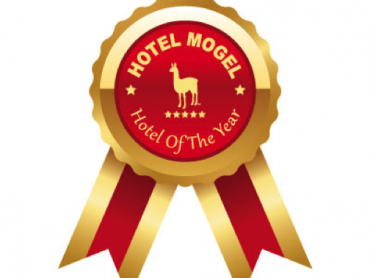Online Booking Engines Come of Age
I recall a conversation with an owner of a Relais & Chateau affiliated property in the early days of the Internet. He questioned the need for a web site and proclaimed to all, “no one I know will book my property over the Internet.”
The first Internet booking engines were somewhat crude, clunky and expensive. Moreover, hoteliers had to load room inventory onto the Internet system, as they did not properly link to the property’s internal PMS. Luckily, those days are long gone, and most Internet booking systems offer 2-way interfaces.
There are many providers of Internet booking engines, a field that is dominated by two excellent products: TravelClick’s iHotelier and Sabre’s Synexis. Both of these are widely available and offer a myriad of add-ons and back-end systems designed to enhance connectivity and rooms inventory management.
But just as one thought that this was a two-horse race, making your decision rather straightforward, a number of new entries have come into the market. One of them that deserves your attention is a Canadian-based upstart called B4Checkin. I had an opportunity to spend some time with the Company’s founder and CEO, Saar Fabrikant, a few weeks ago, to talk to him about this industry and their positioning within the field.
1. Tell me a little bit about the history of booking hotel inventory over the Internet.
According to a survey by the Hotel Association of Canada, and parallel activity by AH&LA, nearly three-quarters of all hotel reservations are made online. This is either through an Online Travel Agency (OTA) like Expedia or on the hotel or hotel brand’s website. This is a stark contrast to 10-15 years ago when the telephone was the dominant channel.
By using the Internet, the online booker can easily compare services, facilities and prices for a variety of hotels. They can also access an OTA to get this information in one place.
In order for properties to take advantage of the online travel booker, it is necessary that they have a searchable, aesthetically-pleasing, and functional website with booking capabilities. This will allow the property to meet the guest’s information needs and to make a reservation.
These hotels require a “booking engine” application to be attached to their website to permit people to book rooms in real time. One advantage of booking with the hotel directly is the use of the hotel’s full cancellation policy as well as not needing a deposit as is the case with most OTA’s.
Based on these increasing trends, it is important that hotels have a robust and functional booking engine to capture the reservations of the modern traveler.
2. When you first looked at starting your venture, what was the status of these booking interfaces.
This was started as a custom solution for the Canadian hotel management firm, Centennial Hotels & Suites. They used Visual One as their PMS. It was determined after they used the product for 18 months that we met all performance criteria. The ‘stand alone’ non-interfaced version was developed next and we started to actively market the product. The next PMS we became certified with was Micros ‘Opera’. With the addition of the Micros interface, we learned that interfaces were standardized through HTNG (Hotel Technology Next Generation) and that PMS vendors would not allow us to develop these interfaces unless they were initiated by existing or potential customers.
3. What was the unique niche that you wanted to exploit.
The simple situation that hotels were buying PMS packages, that include reservation systems, then they decided to switch to a 3rd party reservation system, 3rd party email CRM solutions, and third party feedback systems, we identified this as a ‘unique niche market’ that was under serviced in ‘a one stop shop’ to become ‘an extension’ of any given PMS.
4. The leaders in this industry are Sabre’s Synexis and TravelClick’s iHotelier. How do you successfully compete against these “big boys.”
The big boys are selling a ‘canned’ solution, similar to Microsoft Office, which was designed for the masses. They are both large companies that have a full suite of products. Both companies added products after being primarily GDS providers. Their pricing models are a % of revenue or a $ per transaction fee. This can penalize hotels with large average daily rates (ADR) or a high number of transactions.
B4Checkin offers a more customizable solution that has similar features as the ‘big boys’. With our new 2.0 version coming in Q3 2012, B4Checkin will be the first booking engine to allow the customer to choose from four design templates. This will allow the hotel to have a truly customized look. B4Checkin also charges on a flat monthly fee model that allows hotels to save thousands of dollars as booking volume increases.
5. Why did you pick Halifax, Canada as the home for your business.
I moved from Israel to go to school in Halifax, met my business partner at a co-op term that I did prior to graduation with his previous company, and we started a software development company, then project managed a PMS installation for a group of Canadian hotels and identified the niche mentioned above and the rest as they say, is history.
6. What are your expansion plans?
From a tech perspective, we are currently in development of our platform to the latest technology and adding various new products to encompass all our offerings under one platform, as well as a couple of new product developments. From a sales perspective we are planning to start looking at Europe and Asia as new markets for us.
7. How does your product go beyond those of your competition.
Because we see ourselves as an ‘extension of any given PMS’ our products offer interaction to all customers that are present in the PMS, regardless of how they made a reservation, and whereas all our products focus on increasing and maximizing revenues from the most cost effective channel of any hotel, and retaining customers loyalty & feedback, we are currently the only player in the marketplace that focuses on ‘all these types of products’ as our core business.
8. What does the future hold for this business.
Distribution in general has become the main focus of hotel operations, which changed radically from 8-9 years ago, OTA’s and distribution channels literally ‘created’ the revenue manager position in the hotel world. Personally I believe the hotel industry is going to have to redefine the reality of expensive distribution channels, and we are going to continue to develop tools to increase even further and maximize the value of the direct channel.




